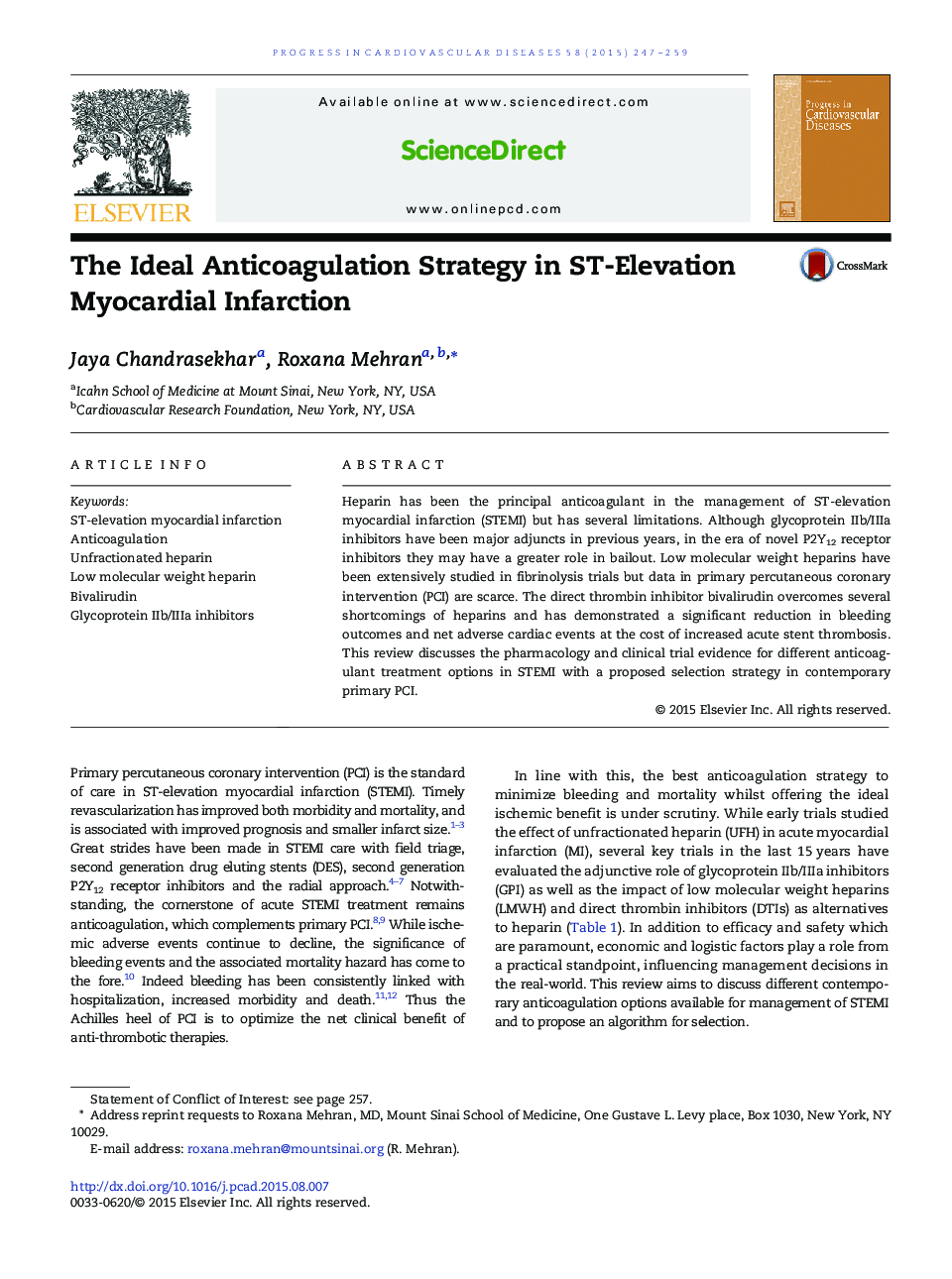| Article ID | Journal | Published Year | Pages | File Type |
|---|---|---|---|---|
| 3006276 | Progress in Cardiovascular Diseases | 2015 | 13 Pages |
Heparin has been the principal anticoagulant in the management of ST-elevation myocardial infarction (STEMI) but has several limitations. Although glycoprotein IIb/IIIa inhibitors have been major adjuncts in previous years, in the era of novel P2Y12 receptor inhibitors they may have a greater role in bailout. Low molecular weight heparins have been extensively studied in fibrinolysis trials but data in primary percutaneous coronary intervention (PCI) are scarce. The direct thrombin inhibitor bivalirudin overcomes several shortcomings of heparins and has demonstrated a significant reduction in bleeding outcomes and net adverse cardiac events at the cost of increased acute stent thrombosis. This review discusses the pharmacology and clinical trial evidence for different anticoagulant treatment options in STEMI with a proposed selection strategy in contemporary primary PCI.
